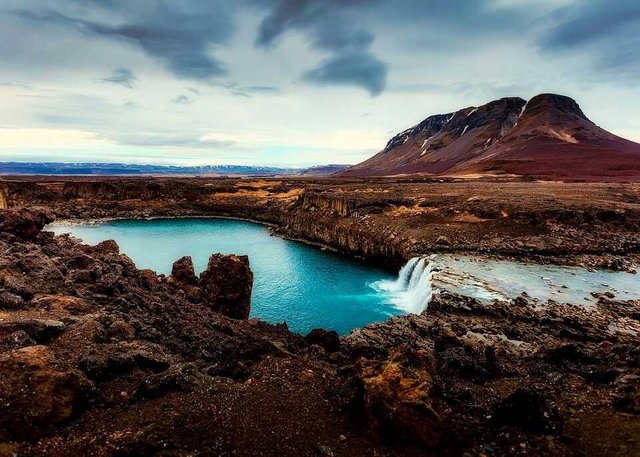Iceland is the first to use more electricity on mining cryptocurriencies than on its households – thanks to magma-fuelled power plants
Iceland is expected to use more energy "mining" bitcoins and other virtual currencies this year than it uses to power its homes.

The new industry's relatively sudden growth prompted lawmaker Smari McodecCarthy of Iceland's Pirate Party to suggest taxing the profits of bitcoin mines. The initiative is likely to be well received by Icelanders, who are skeptical of speculative financial ventures after the country's catastrophic 2008 banking crash.
Why is Iceland so popular?
The answer is simple: location, location and volcanoes. Volcanoes provide Iceland with a cheap and abundant form of renewable energy. Geothermal and hydroelectric plants abound on the island, driving down the wholesale cost of power, which lets bitcoin miners make higher profits as they run their computers 24/7, 365 days a year.
The country’s location, at the northernmost tip of the Mid-Atlantic Ridge, provides a second benefit beyond a lot of magma. The Arctic air reduces the need to invest in expensive air-conditioning for the server rooms – crucial, since the specialised chips used to mine most cryptocurrencies produce huge amounts of heat when run at their maximum efficiency.
Of course, even efficient cooling won’t help miners eke out profits if the price of bitcoin falls too far. But at least one company based in Reykjavik can handle quite a bit more devaluation: Genesis Mining moved there in 2014 from Germany, when the price of bitcoin was well under $1,000. “What we are doing here is like gold mining,” Helmut Rauth, the company’s operations manager, told AP. Of course, gold mines eventually run dry. Who knows if the same will happen to bitcoin ones.
Chief among them is whether any of the value they create remains in the Icelandic economy, and the increased risk of hacking attacks bitcoin mining brings. Still, he says he believes that Iceland should embrace innovation — including bitcoin.
While McCarthy may by cautiously optimistic, China, another popular location for bitcoin miners, recently went even further. The country says that it will crack down on bitcoin mining because of the onerous energy demands.
About 60% of all cryptocurrency mining takes place in China, according to a study last year by the University of Cambridge. The country is a good fit for the activity because of the cheap electricity and land available in provincial areas.
But the industry is feeling unwelcome these days.
China's unwanted bitcoin miners may move to Canada
“Basically, there is no future for us bitcoin miners in China. We have two options: either find a state-owned enterprise to become a parent, or move overseas,” a bitcoin mine owner told First Financial.
In Shenzhen, bitcoin mining machine producers are kept busy as global buyers are still buying mining machines, which means that the computing power is still increasing worldwide. For bitcoin miners, this may be the last feast in their mining journey.
Investopedia explains:
Bitcoin mining is the process by which transactions are verified and added to the public ledger, known as the block chain, and also the means through which new bitcoin are released. Anyone with access to the internet and suitable hardware can participate in mining. The mining process involves compiling recent transactions into blocks and trying to solve a computationally difficult puzzle. The participant who first solves the puzzle gets to place the next block on the block chain and claim the rewards. The rewards, which incentivize mining, are both the transaction fees associated with the transactions compiled in the block as well as newly released bitcoin.
Every ten minutes a miner wins a price of 12.5 bitcoins, still worth over a hundred thousand dollars in spite of a huge decline of more than half of bitcoin's value.
The companies that provide the vast amounts of computing power needed for these transactions earn a small share, comparable to a processing fee.
They are the source of the Icelandic bitcoin miners' income — a revenue source many Icelanders are still not quite sure what to make of, especially if the lights start flickering.